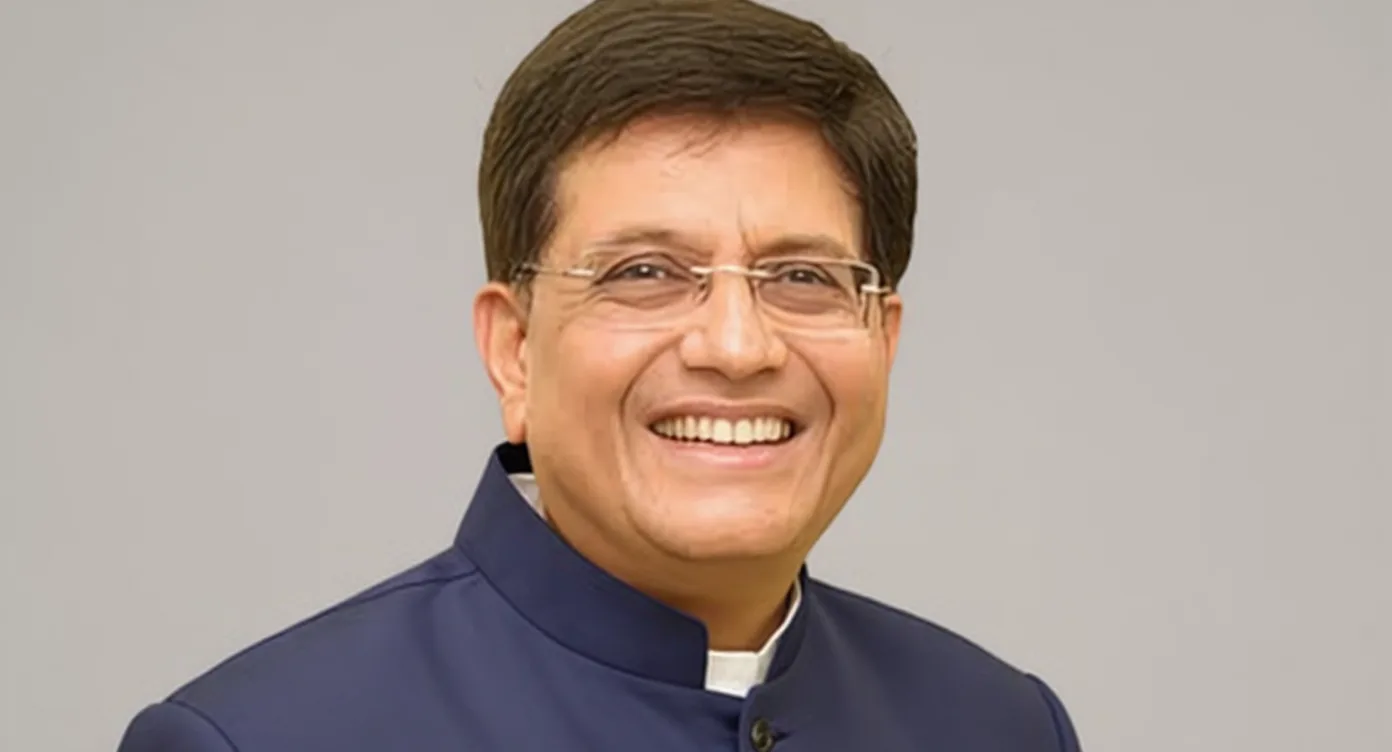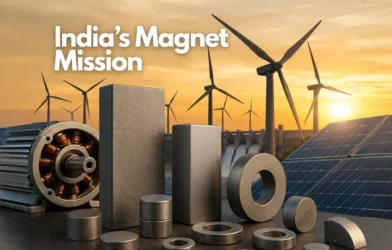Author: Aditya Pareek | EQMint | Finances News
India is stepping into a new era of technological self-reliance and global leadership. Union Minister of Commerce and Industry Piyush Goyal has announced a massive $12 billion (₹1 lakh crore) push towards research, development, and innovation — positioning India as a “Global Engine of Innovation” in the coming decade.
This investment, one of the largest R&D initiatives in India’s history, underscores the government’s ambition to transition from being the “back office of the world” to a frontline creator of technology, products, and ideas that shape the global economy.
Piyush Goyal’s Vision to Lead the Innovation Century
At a recent industry event, Goyal emphasized that India is no longer just an outsourcing hub or a manufacturing alternative but a powerhouse of intellectual capital and innovation. The $12 billion allocation will fund strategic research, deep tech startups, digital manufacturing, artificial intelligence, and sustainability-driven innovation across key sectors.
He described innovation as the “new currency of growth”, adding that India’s demographic advantage, digital infrastructure, and policy ecosystem make it one of the few countries capable of leading the global innovation race.
“India is not only participating in global innovation — we are leading it. The world now looks to India for scalable, sustainable, and inclusive solutions,” Goyal said, reaffirming the government’s commitment to strengthening innovation ecosystems nationwide.
The $12 Billion Innovation Push — What It Covers
The new research and innovation fund aims to integrate public and private R&D, strengthen academia-industry collaboration, and build cutting-edge facilities to foster original invention. The fund will cover several focus areas:
- Deep Technology: Investments in AI, quantum computing, blockchain, and semiconductor research.
- Green & Clean Tech: Funding for renewable energy innovations, electric mobility, circular economy solutions, and carbon capture technologies.
- Life Sciences & Healthtech: Support for biotech, medical devices, and genomic research to make India a global medical innovation center.
- Advanced Manufacturing: Promotion of robotics, automation, and precision engineering to make Indian manufacturing globally competitive.
- Digital Infrastructure: Enhancing cloud systems, cybersecurity, and 5G-driven digital public platforms to support innovation across sectors.
This will be complemented by the creation of innovation clusters in Bengaluru, Hyderabad, Pune, and Gurugram — modeled after global innovation hubs like Silicon Valley and Shenzhen.
A New Era for Indian Startups and Academia
The $12 billion initiative will also empower India’s startups, universities, and research institutions to take bold ideas to market faster. The government plans to set up Innovation Facilitation Centers (IFCs) that bridge the gap between academic research and commercial application, enabling faster technology transfers and patent creation.
In parallel, the Startup India Seed Fund and Digital India Innovation Fund will be integrated under this larger national innovation framework, ensuring smoother funding access for early-stage startups in sectors like biotech, agri-tech, climate tech, and aerospace.
Universities will play a major role in this new innovation roadmap. The Ministry of Education and the Department for Science & Technology are working together to increase research grants, international collaborations, and global faculty partnerships.
India’s Innovation Strength — The Numbers Speak
India has been steadily rising in the Global Innovation Index, moving from rank 81 in 2015 to rank 40 in 2024 — a 41-place improvement in less than a decade. The country now hosts over 115,000 startups, of which more than 120 are unicorns.
Goyal highlighted that India’s Digital Public Infrastructure (DPI) — including Aadhaar, UPI, and ONDC — has become a model for inclusive innovation, replicable by emerging economies. With the new research fund, India aims to move into the top 25 of the Global Innovation Index within the next few years.
Global Partnerships and the Innovation Supply Chain
The government is also focusing on international collaboration to strengthen its innovation supply chain. India is in active talks with global partners like the United States, Japan, Germany, and the UAE to co-develop technologies in clean energy, semiconductors, and biotechnology.
Through the India Innovation Alliance (IIA) — a multi-nation collaborative platform expected to launch in 2026 — India seeks to build shared R&D frameworks, patent pools, and knowledge exchange programs with innovation-driven economies.
This strategy aims to position India not just as a beneficiary of technology transfer, but as an originator of global innovation — exporting intellectual property, patents, and R&D-led products.
Driving Inclusive Innovation
A significant part of the $12 billion plan will also be directed towards grassroots and inclusive innovation. Initiatives such as Atal Innovation Mission, Digital Skill Hubs, and Rural Maker Labs will receive additional support to empower innovators outside urban centers.
Goyal stressed that innovation must not be restricted to large corporations or research labs alone. “True innovation is about transforming the lives of ordinary Indians — from farmers and artisans to small business owners. When innovation becomes inclusive, it becomes unstoppable,” he said.
The Road Ahead
India’s innovation ecosystem is entering a transformative phase. The combination of massive public investment, private participation, and policy reform is set to unlock new pathways for growth. The focus now is on outcomes — commercialized patents, export-ready technologies, and globally recognized Indian products.
Industry leaders have welcomed the announcement, calling it a historic leap for India’s R&D landscape. Many believe this could accelerate India’s transition to a knowledge economy, reduce dependency on imported technologies, and generate high-value employment across sectors.
Conclusion
With a $12 billion research boost and a clear vision to lead the innovation century, India is rewriting its global role — from a service provider to a creator of cutting-edge technologies.
As Piyush Goyal aptly stated, “Innovation is India’s passport to global leadership.”
The country’s next big revolution won’t just be industrial or digital — it will be innovational.
For more such information visit EQMint.
Disclaimer: This article is based on information available from public sources. It has not been reported by EQMint journalists. EQMint has compiled and presented the content for informational purposes only and does not guarantee its accuracy or completeness. Readers are advised to verify details independently before relying on them.









